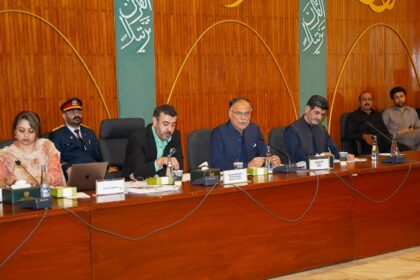The Competition Appellate Tribunal has rejected an appeal by the Institute of Chartered Accountants of Pakistan (ICAP) and upheld a previous Competition Commission of Pakistan (CCP) ruling, confirming a Rs. 1 million fine levied against ICAP for price-fixing practices. The Tribunal’s verdict reinforces CCP’s stance against anti-competitive measures and stresses that regulatory bodies are not exempt from competition laws.
The original ruling from CCP came after ICAP introduced amendments during its 197th Council Meeting, held in 2008, through which it established a mandatory minimum audit fee structure and hourly service rates for public sector audits. These pricing guidelines, distributed as ICAP’s Accounting Technical Releases (ATRs), limited the ability of individual accounting practitioners and audit firms to freely compete, thus breaching fundamental free market principles.
CCP’s decision officially annulled the pricing guidelines set by ICAP and ordered the organization to remove related provisions from its Members’ Handbook. Additionally, the Commission instructed ICAP to publicly retract and clarify their stance through advertisements published in two national newspapers, ensuring wider public awareness of their anti-competitive conduct.
ICAP challenged CCP’s decision by filing an appeal with the Competition Appellate Tribunal. Represented by senior lawyer Dr. Farogh Naseem, the institute argued that, as a statutory regulatory entity, it possessed the legal mandate to issue recommendations concerning audit fees, particularly for audits performed within government institutions.
Countering ICAP’s claims, CCP lawyers pointed out that regulatory status does not grant unrestricted authority to dictate or control competitive pricing structures. The Commission underscored that such rigid guidelines on fees and charging practices effectively amount to price collusion and market manipulation—behaviors clearly defined as anti-competitive under competition laws around the world.
After careful deliberation of the legal arguments put forth by both sides, the Tribunal unanimously ruled in favor of CCP. The Tribunal declared that the ICAP-prescribed fee schedules constituted a clear violation of competition law, undermined fair competition, and negatively impacted the ideals of an open and transparent market economy.
This ruling further solidifies CCP’s regulatory position that professional and statutory bodies must adhere strictly to legal and ethical standards that safeguard healthy market competition. It also highlights a firm commitment to preventing price-fixing schemes, even when cloaked under the veil of regulatory requirements.











